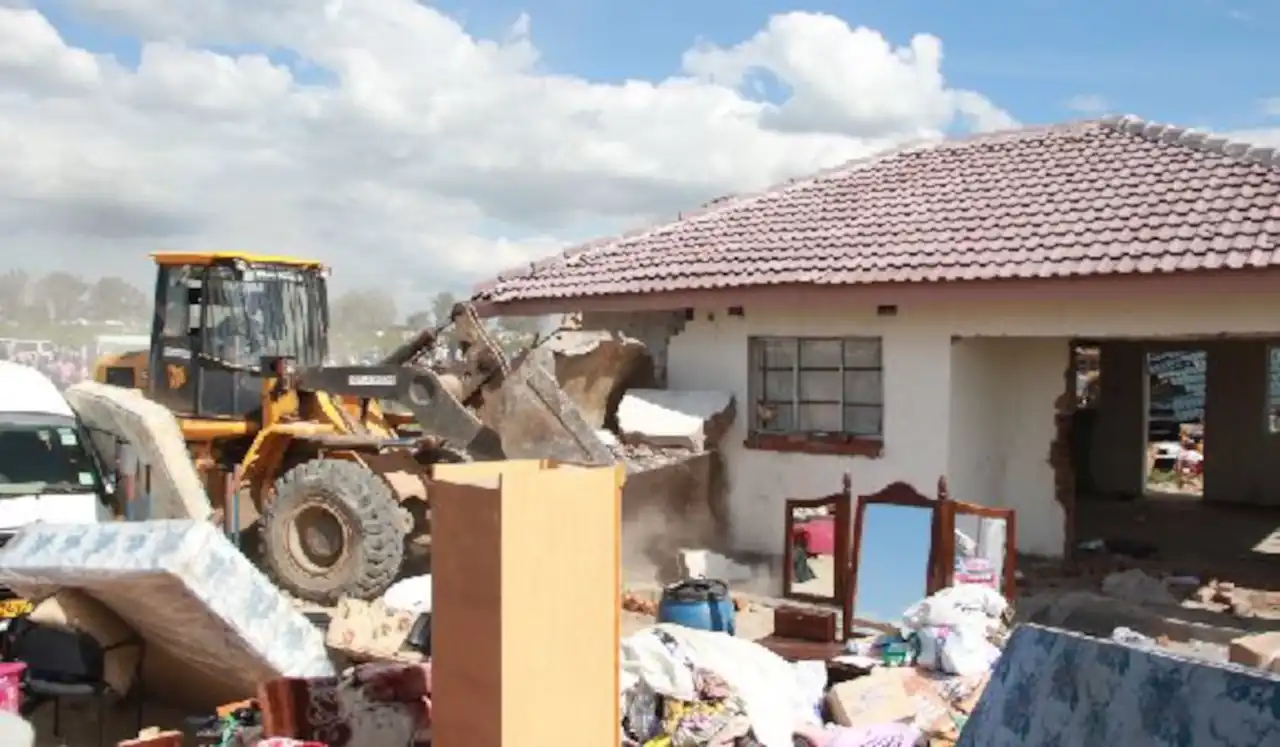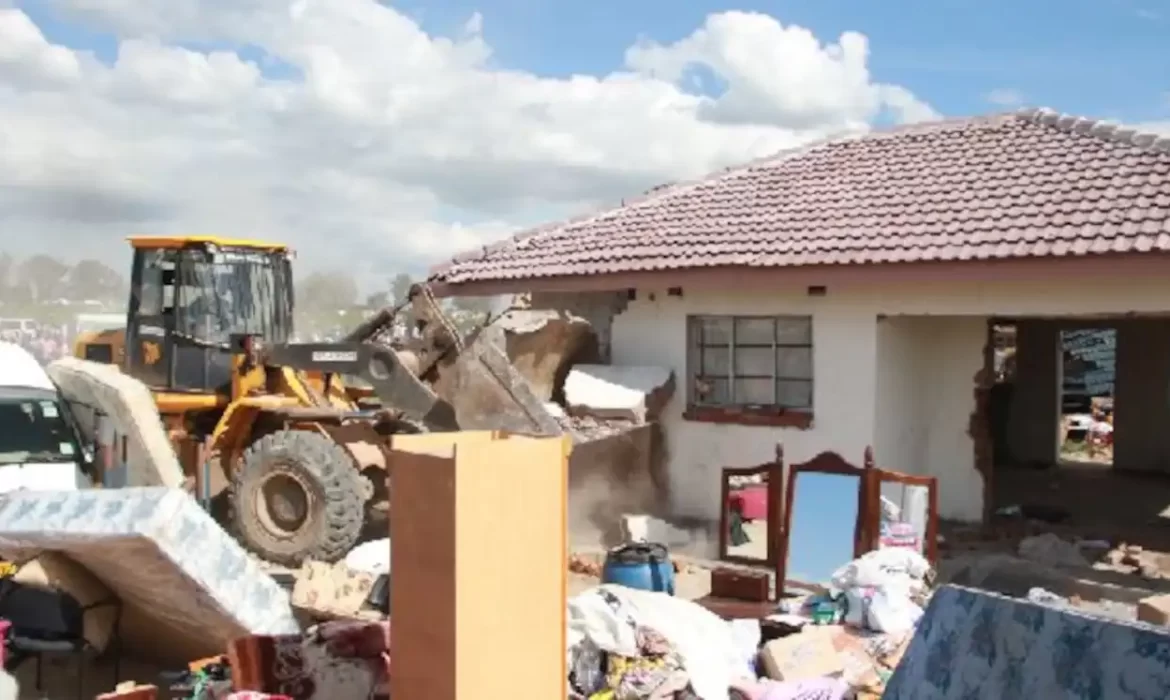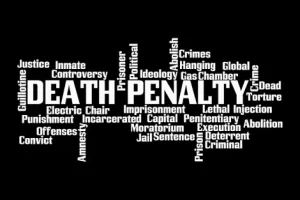High Court Declares House Demolitions Unconstitutional
The Zimbabwe High Court has ruled that demolishing houses without a court order is unconstitutional. The landmark decision, handed down by Justice Never Katiyo, comes after a legal challenge by the Chitungwiza Residents Trust (CHITREST).
Represented by Zimbabwe Lawyers for Human Rights (ZLHR), CHITREST argued that certain provisions of the Regional, Town and Country Planning Act violated the Constitution.
CHITREST challenged sections 32(2)(c) and (d) and 37(1)(a)(i) of the Act, which allowed local authorities to demolish houses without first obtaining a court order.
The residents argued that these sections conflicted with section 74 of the Constitution, which protects citizens from arbitrary eviction from their homes.
“The Constitution is the supreme law of the land, and any law inconsistent with it is invalid to the extent of that inconsistency,” stated Tinashe Chinopfukutwa, one of the human rights lawyers representing CHITREST.

A Significant Ruling
Justice Katiyo’s ruling, issued on 24 July 2024, declared the challenged sections of the Act unconstitutional. He also invalidated a demolition order issued by the Chitungwiza Municipality in October 2020, which had prompted the legal battle.
The judge ruled that the order of constitutional invalidity would be suspended for 12 months to allow the government to amend the impugned legislation to comply with the Constitution.
The High Court’s decision marks a significant victory for residents across Zimbabwe, particularly those in informal settlements who have lived under the constant threat of demolition.
“This ruling secures the rights of homeowners against arbitrary actions by local authorities,” said Paida Saurombe, another lawyer from ZLHR.
Next Steps for Government
The ruling also puts pressure on the Ministry of Local Government, Public Works, and the Ministry of Justice, Legal and Parliamentary Affairs to amend the offending sections of the Act.
If they fail to do so within the 12-month suspension period, the unconstitutional provisions will become null and void.
Attorney-General Virginia Mabhiza, along with Ministers Daniel Garwe and Ziyambi Ziyambi, were named as respondents in the case.
They now have the responsibility to ensure the law is brought in line with constitutional requirements.
Follow Us on Google News for Immediate Updates
The post Zimbabwe High Court Protects Homeowners in Landmark Ruling Against Demolitions appeared first on iHarare News.











 Zim Instantly via Simplex Solutions
Zim Instantly via Simplex Solutions